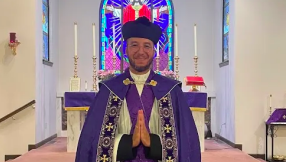Sexual harassment and the sharing of nude photos has become commonplace in British schools, while many children feel pressured into sexual activity, a shocking new Ofsted report has found.
The review of 900 children spanned 32 state and private schools and colleges, and concluded that sexual harassment, including online sexual abuse, has become "normalised" for children and young people.
Around 9 in 10 girls said that sexist name calling and receiving unwanted explicit pictures or videos happened 'a lot' or 'sometimes'.
Inspectors heard how boys use WhatsApp or Snapchat to share nude photos among themselves like a "collection game".
Around two-thirds of girls said they felt pressured to do sexual things they did not want to do, while a majority also report unwanted touching.
Children also told inspectors during the eight-week review that sexist name-calling had become "commonplace".
Yet inspectors found that many "don't see the point of challenging or reporting this harmful behaviour because it's seen as a normal experience".
"The frequency of these harmful sexual behaviours means that some children and young people consider them normal," the report said.
School children also felt that teachers were unaware of the prevalence of sexual harassment.
The review recommends that schools "act on the assumption" that sexual harassment is affecting their pupils, and that they take a "whole-school approach" aimed at creating a culture where sexual harassment is not tolerated.
Chief Inspector Amanda Spielman said she was "shocked" by the review, and that the findings showed the need to "change attitudes".
"It's alarming that many children and young people, particularly girls, feel they have to accept sexual harassment as part of growing up. Whether it's happening at school or in their social life, they simply don't feel it's worth reporting," she said.
"This is a cultural issue; it's about attitudes and behaviours becoming normalised, and schools and colleges can't solve that by themselves. The government needs to look at online bullying and abuse, and the ease with which children can access pornography."
Simon Calvert, of The Christian Institute, said that the problem could not be addressed without also addressing sex education.
"The fact is, the sex education industry needs to take its share of the blame because it is obsessed with explicitness and hostile to the Christian sexual ethic," he said.
"It's time the Government made space in sex education for a diversity of opinions instead of the monolithic socially liberal agenda that currently dominates.
"Christians should be allowed opportunities to explain the benefits of self-control and the joys of marriage."
Read his full comment here.













